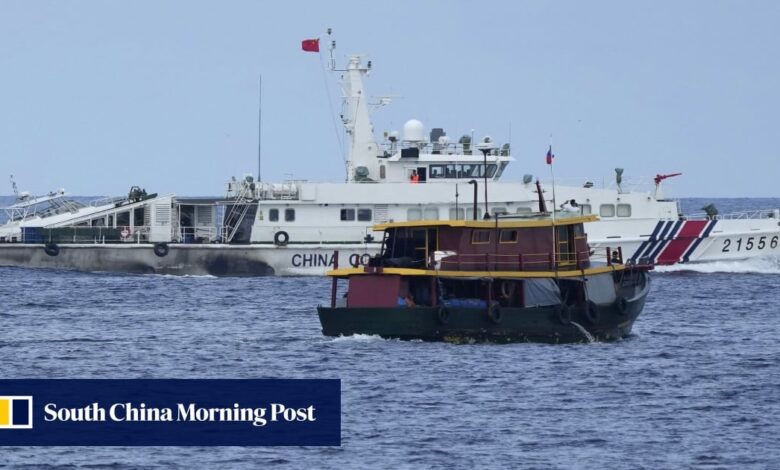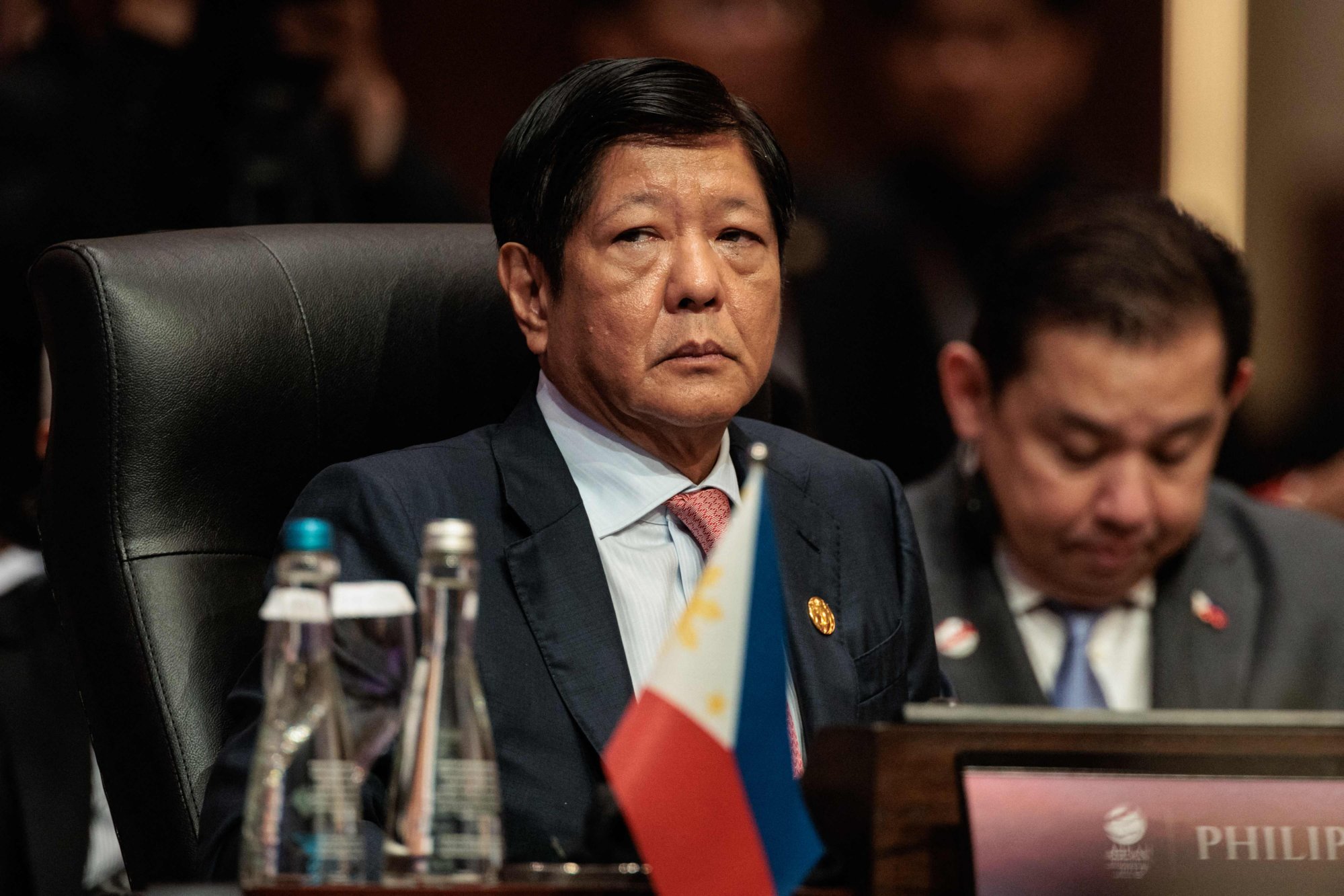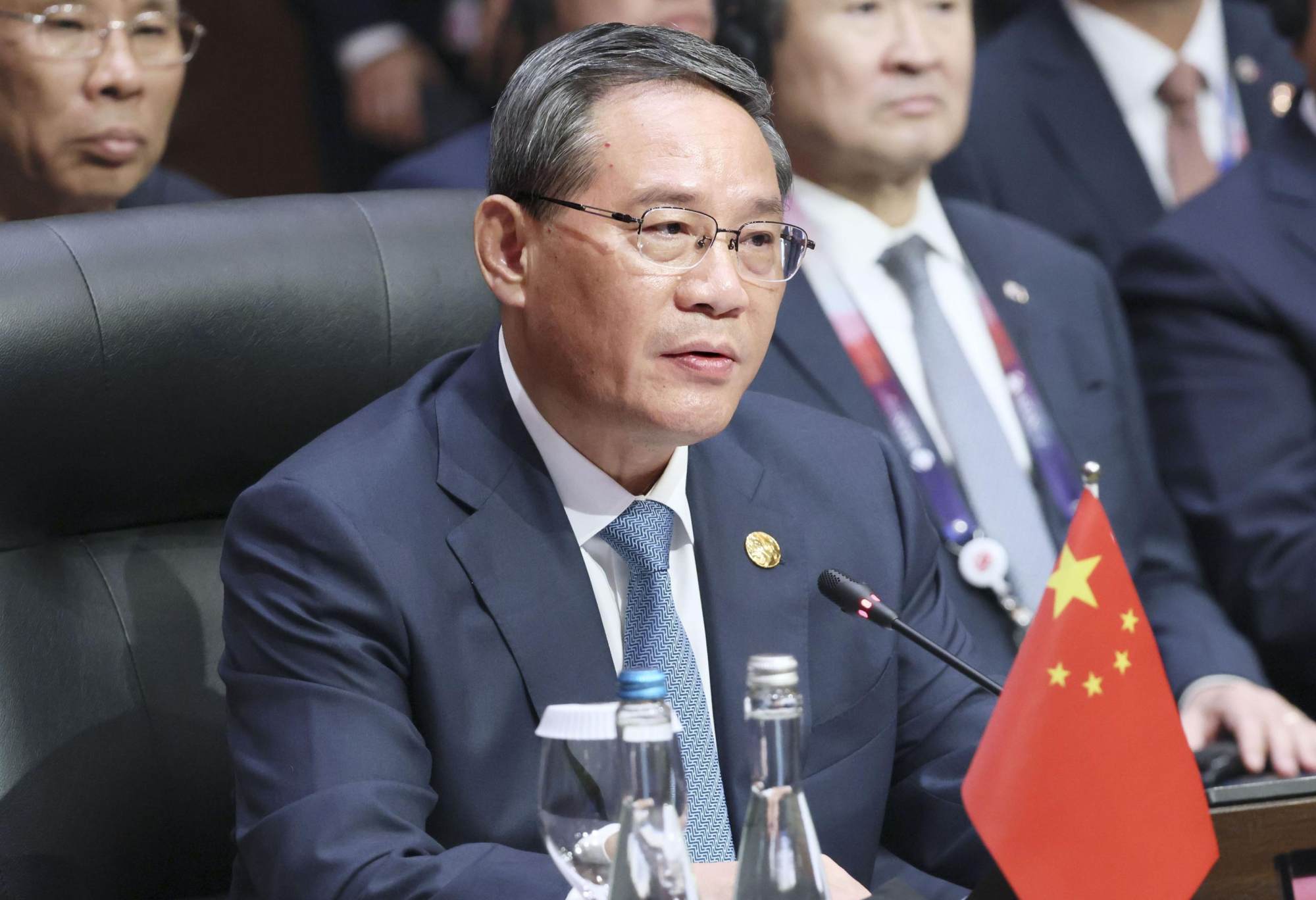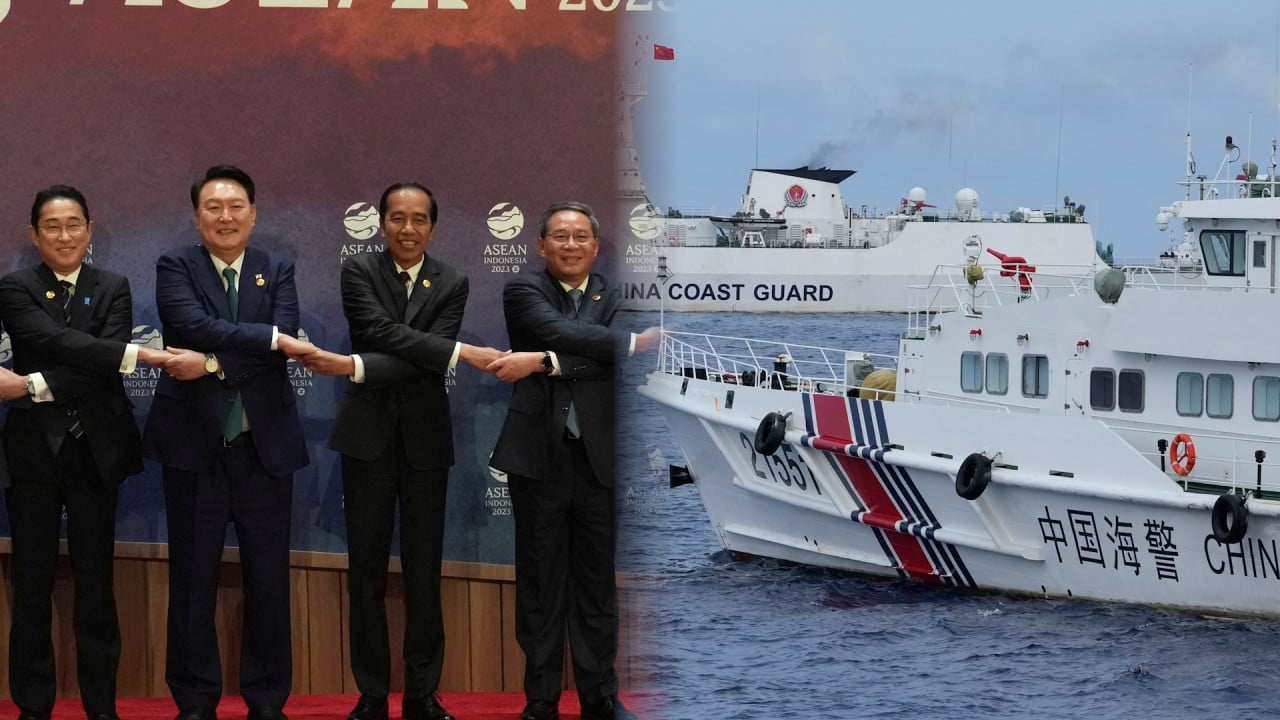South China Sea row affects Philippine interests and is not solely a US-China issue, Marcos Jnr says

[ad_1]
“The Philippines firmly rejects misleading narratives that frame the disputes in the South China Sea solely through the lens of strategic competition between two powerful countries,” he said during his intervention following Widodo’s remarks. “This not only denies us of our independence and agency, but also disregards our own legitimate interests.”
This week’s meeting included a conference among the grouping’s national leaders as well as a separate set of so-called Asean Plus One meetings with major trading partners; a meeting with China, Japan and South Korea called Asean Plus Three; and a broader summit featuring most of the world’s major powers called the East Asia Summit.
Manila had run the World War II-era ship aground there in the late 1990s to help assert Philippine sovereignty.

“Marcos Jnr might be responding to the narrative that recent incidents were a result of the US prodding the Philippines,” Koh said. “He might have also wanted more concrete discussions on the South China Sea issues, for the possibility that the Philippines might be able to draw on Asean as a source of support.”
But expecting unity from Asean on that front has been a long-standing challenge, and Koh said the bloc had shown it had limited utility even with the recent flare-ups. “Within Asean, there are members that do not want to get embroiled in the issue,” he said.
Asean warned of ‘damaging’ impact of a non-response on South China Sea
Asean warned of ‘damaging’ impact of a non-response on South China Sea
At the summit, Marcos Jnr also warned against “hegemonic” ambitions in the South China Sea.
“As tensions and mistrust between the great powers escalate, so too does the prospect of miscalculation that threatens to engulf the region, with the severest consequences for all of us,” he said.
China has overlapping claims with several Southeast Asian nations in the South China Sea. The Southeast Asian claimants, despite some internal differences, reject Beijing’s “nine-dash line” claim to around 90 per cent of the waterway.
At the summit, Li did not directly refer to the controversy stirred by Beijing’s latest release of its territorial map, saying that disagreements must be handled properly “through dialogue and consultation”.
“As long as we both keep to the right path, no matter what storm may come, China-Asean cooperation will be as firm as ever and press ahead against all odds,” Li said.

Since entering office, Marcos Jnr has taken a stronger stance on China, but maintained that cooperation with the world’s second-largest economy was necessary.
In a statement published on Thursday following Li’s meeting with Asean leaders, Marcos Jnr’s office said the Philippines would “continue to push for cooperation with China and work towards more partnerships and collaboration”.
The statement also highlighted that some progress had been made in the negotiations for the CoC held in Manila a few weeks ago.
Indonesia’s South China Sea remarks show a ‘level up’ of support for claimants
Indonesia’s South China Sea remarks show a ‘level up’ of support for claimants
Despite the security challenges faced by several Asean member states, observers say maintaining their economic ties with China remains necessary, especially towards investments in infrastructure projects in the region.
“Some member states might see that instead of pushing for the difficult if not impossible approach of total Asean unity, maybe you can get some like-minded members on your side,” he said.
[ad_2]
Source link





